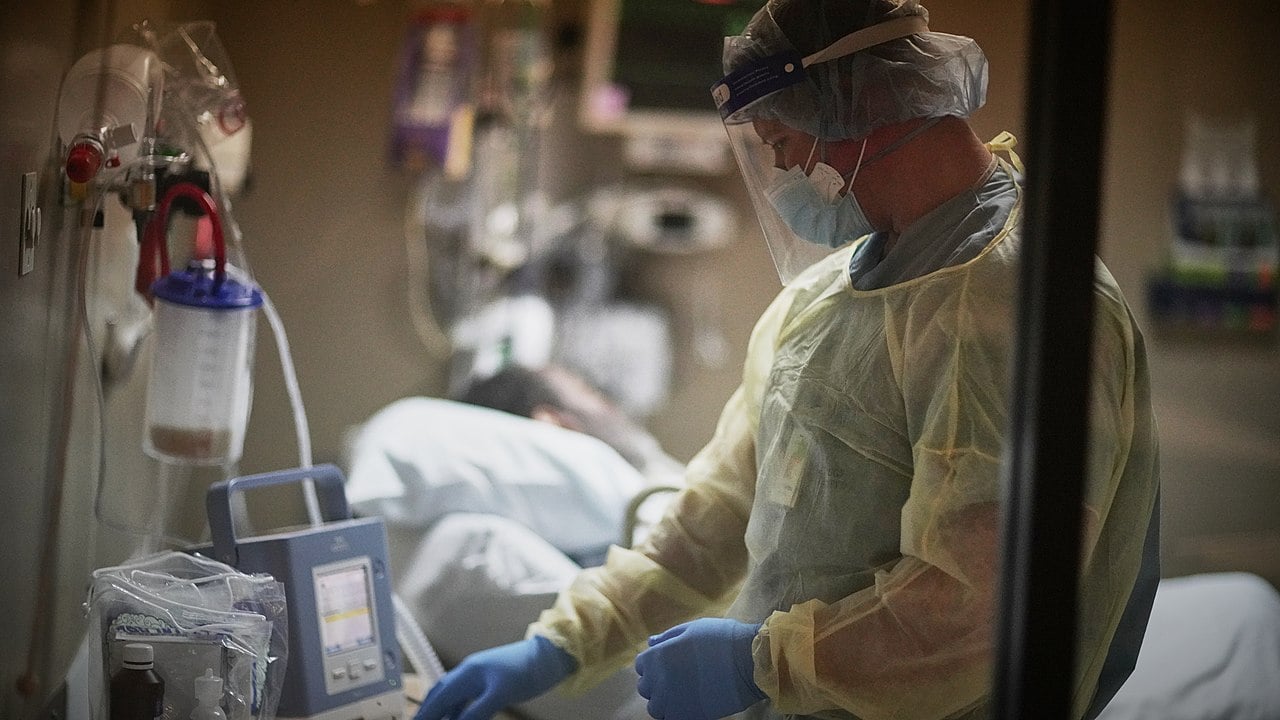Politics
Elon Musk Says Ventilators, Not COVID-19 Virus, Responsible for Millions of Deaths (VIDEO)

On a recent episode of “The Joe Rogan Experience,” the celebrated CEO of Tesla and owner of social media platform X/Twitter, Elon Musk, made a bold assertion. He suggested that bacterial lung infections in patients on ventilators might have led to more deaths than the COVID-19 virus itself.
During this conversation, Joe Rogan pointed out, “Well, 80% of the people they put on ventilators died.”
Rogan’s reference could be traced back to a report from Epoch Times, which cited data by Dr. Joseph Mercola. According to this data, a staggering 76.4 percent of COVID-19 patients aged 18 to 65 in New York City who were administered ventilators did not survive. Moreover, the percentage shot up to 97.2 for those aged above 65.
Musk then chimed in with a revelation that he had actually been in touch with doctors from Wuhan, China, the epicenter of the COVID-19 outbreak. He shared that the physicians admitted to an over-reliance on intubated ventilators during the initial wave of the pandemic, which may have been a grave error leading to more harm than the disease they aimed to combat.
“I actually posted about that. Because I called doctors in Wuhan and asked, ‘What are the biggest mistakes that you made during the first wave?’ Those were early on, and they said, ‘We put far too many people on intubated ventilators,” Musk said.
“So, then, I actually posted on Twitter at the time and said, “Hey, what I’m hearing from Wuhan is that they made a big mistake in putting people on intubated ventilators for an extended period, and that this is actually what is damaging the lungs, not COVID.” It’s the treatment; the cure is worse than the disease. And people yelled at me and said, “You’re not a doctor.” I’m like, “Yeah, but I do make spaceships with life support systems. What do you do?” Musk added.
WATCH:
THREAD: “80% of the people they put on ventilators died,” Joe Rogan told billionaire entrepreneur Elon Musk on the Joe Rogan Experience Tuesday.
“Yeah. So, in fact, I actually posted about that,” responded Musk, “because I called doctors in Wuhan and said, ‘What are the… pic.twitter.com/u7BVRjsi4N
— The Vigilant Fox (@VigilantFox) November 1, 2023
In April 2020, Elon Musk wrote on Twitter, “When I talked to doctors in Wuhan, they recommended against invasive ventilators & in favor of non-invasive… Numbers I was told from Wuhan were 80% to 90% mortality rate for invasive ventilators. Those are not good odds.”
When I talked to doctors in Wuhan, they recommended against invasive ventilators & in favor of non-invasive
— Elon Musk (@elonmusk) April 22, 2020
Numbers I was told from Wuhan were 80% to 90% mortality rate for invasive ventilators. Those are not good odds.
— Elon Musk (@elonmusk) April 22, 2020
His tweet was in response to a post, which read, “Oh this is going to make a lot mad. They are now saying don’t use invasive ventilators, but to use oxygen first, but if that doesn’t work to use CPAP or BiPAP ventilators before invasive ventilators.”
No kidding …
— Elon Musk (@elonmusk) April 22, 2020
Musk additionally brought attention to a New York study, noting it mirrored Wuhan’s outcomes concerning invasive ventilators.
Bloomberg reported:
A giant study that examined outcomes for more than 2,600 patients found an extraordinarily high 88% death rate among Covid-19 patients in the New York City area who had to be placed on mechanical devices to help them breathe.
The study, published in the Journal of the American Medical Association, is one of the largest reviews published to date of Covid-19 patients hospitalized in the U.S. The researchers examined outcomes for coronavirus patients who were admitted between March 1 and April 4 to 12 hospitals in New York City and Long Island that are part of the Northwell Health system.
Overall, the researchers reported that 553 patients died, or 21%. But among the 12% of very sick patients that needed ventilators to breathe, the death rate rose to 88%. The rate was particularly awful for patients over 65 who were placed on a machine, with just 3% of those patients surviving, according to the results. Men had a higher mortality rate than women.
Two days after releasing the study, the Journal issued a clarification, deleting the 88% figure from the abstract and saying that most ventilator patients in the study were still hospitalized and that the mortality rate is expected to come down as more results come in. The clarification also stated that 24.5% of the total number of patients who had received ventilator treatment had died, while 3.3% survived and were discharged. The rest, or 72.2%, remained hospitalized as of April 4.
Read the full article here


















